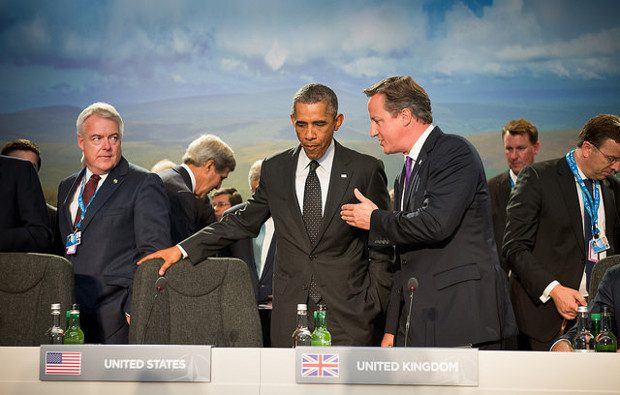Who’s Afraid of ‘Brexit’?

Tim Montgomerie isn’t pleased with Obama’s planned intervention in the “Brexit” debate:
The timing of his visit, halfway through the EU referendum debate, is no accident. There is a longstanding international understanding that world leaders don’t visit during election campaigns — but such conventions were obviously designed for lesser mortals. Obama has no qualms and the Prime Minister has no shame: he needs every endorsement he can get.
The standard line from Washington is that “Brexit” will be bad for both the U.S. and the EU, and so taking sides in the debate is a legitimate thing for the president to do. Strobe Talbott puts this in the most alarmist terms possible today:
As the suspense heightens, so should the recognition that Brexit could be the worst news yet for the trans-Atlantic community, particularly for Britain and the United States, and very bad news for the entire world.
In fact, it’s not clear that “Brexit” would be such a great problem for the U.S. or most of the world. It probably will be a headache for the rest of the EU, but not necessarily the disaster that some make it out to be. If the EU has proven to be so dysfunctional, undemocratic, and burdensome that one of its leading members wants to quit it, perhaps the U.S. shouldn’t be trying to be more European than the Europeans.
The fear that the EU might unravel because of “Brexit” underestimates the depth of ideological commitment to the project among Europe’s political classes and overrates the strength of Euroskeptic forces on the continent, but it also reflects the same contempt for the consent of the governed that defines so much of the European project. Talbott also warns that “Brexit” might lead to Scottish independence, but it’s entirely possible that Scotland will still go its own way following a Remain win. The referendum itself is likely to expose and deepen fault lines within the U.K. regardless of the outcome, and you can count on the SNP to take advantage of that. Talbott worries that Scottish independence might lead to the success of other separatist movements, but he fails to mention that these separatists are more firmly pro-EU than the countries from which they seek to withdraw. The one theme tying all of these warnings together is the terror that the voters in these countries might get their way rather than accept the preferences of their political leaders.
Even if “Brexit” were bad for the U.S., the president’s decision to endorse continued British membership in the EU is likely to backfire on him and the Remain campaign. There is no way that an American president’s intervention in a British referendum debate won’t seem like unwelcome outside interference, and it seems more likely to energize the Leave campaign’s supporters. The reality is that the U.S. will continue to have a close relationship with the U.K. whether it remains in the EU or not, just as it had before the EU or the EEC existed. The president should be emphasizing that when he visits this week instead of trying to put a thumb on the scales of the referendum.
Comments